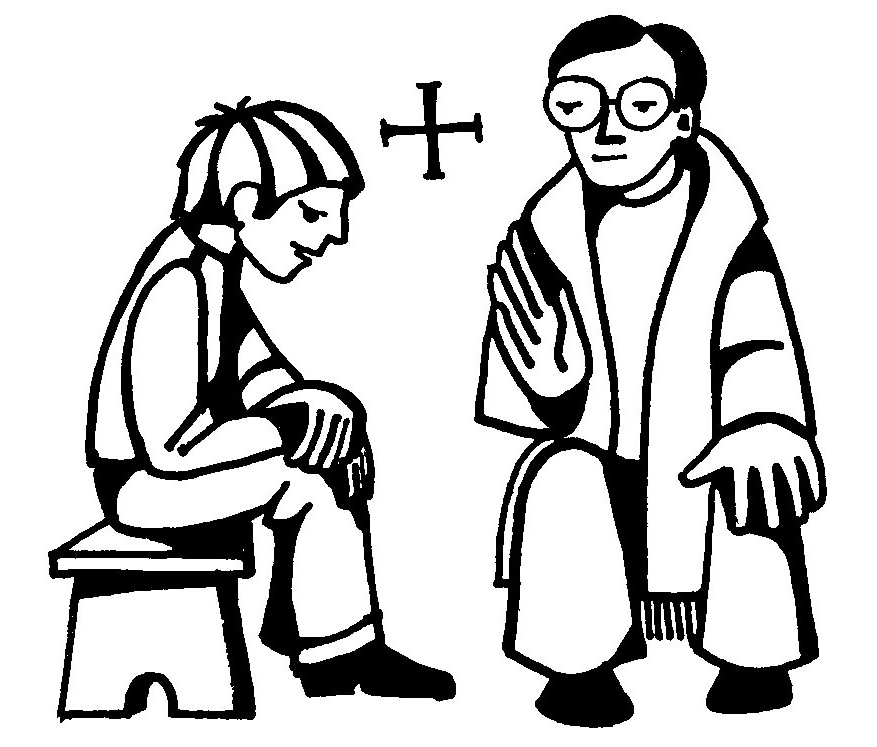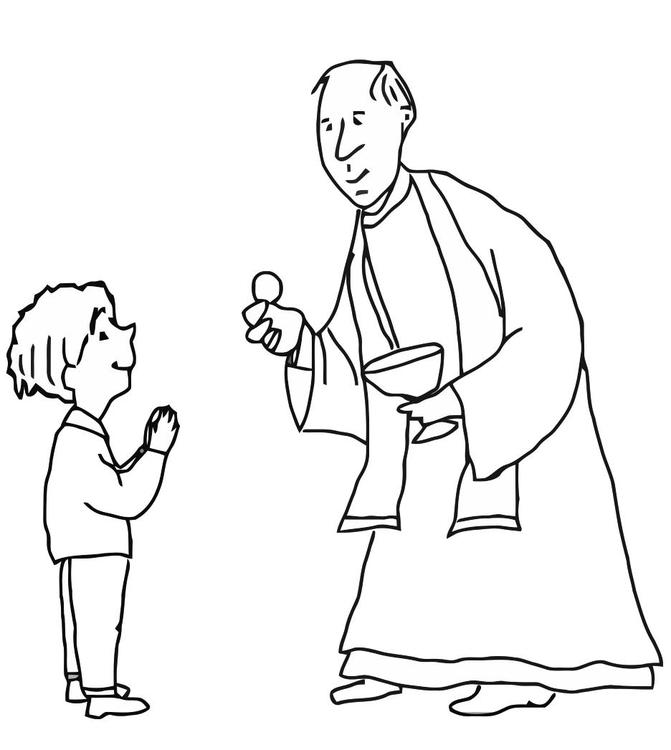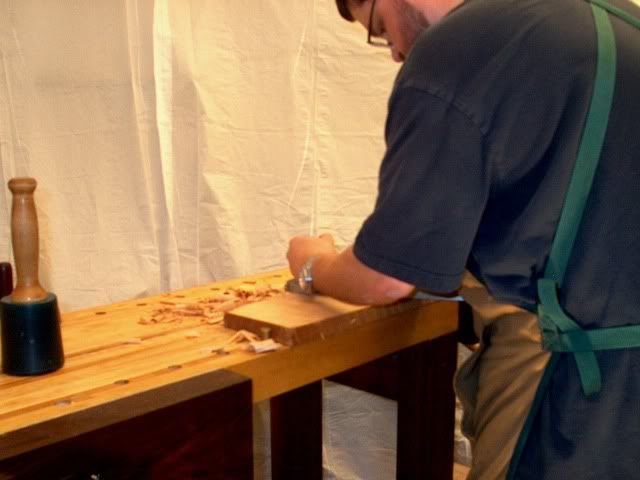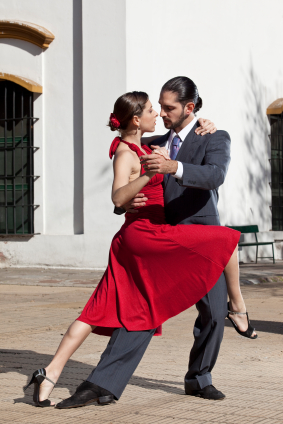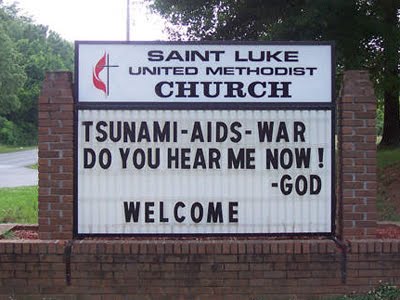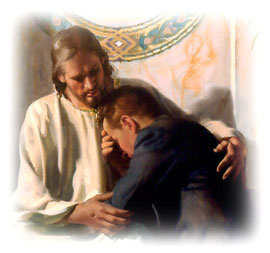 |
| My Father and my niece. |
So here is one of my favorite stories:
A few thousand years ago (and still to this day) the Hebrew people (the Jews) had a few very important religious occasions that they would celebrate with a ritual meal.
It is kind of difficult for us to fully appreciate what their ritual meals were/are like because in the 21st century United States we don't have many rituals to our meals. We live in a "fast food" era and when we do have a holiday meal there might only be a little bit of "ritual" to it.
The Thanksgiving meal might be the best example for us (in the USA). We always have turkey and your family might then have the same side dishes every year. Someone might lead a prayer before hand and the meal will probably end with pumpkin pie and the watching of football. I love Thanksgiving...
The Hebrew ritual meal was also (what we might call) a "prayer service." Their meal had a few steps to it.
- They gathered as a community/family/loved ones
- An elder would lead the ritual meal
- They sang a religious hymn (or more than one)
- They read from Scripture
- There was a time to reflect on the passages from Scripture
- Then they would eat the meal
- At different times during the meal they would offer various items of food to God, bless them, and then share them with each other.
- They would conclude the meal with some prayers and some more hymns.

I think we all know that Jesus of Nazareth was a Jew. So he often would celebrate these "ritual meals" with his friends and family. The Last Supper was one of these "ritual meals."
 |
| The actual room where the Last Supper took place |
At one point during the meal the bread is offered to God, blessed, broken, and shared. This is part of the ritual that was always celebrated.
At the end of the meal the cup of wine is offered to God, blessed, and shared. This is also part of the ritual of that meal. These two things were always done.
I'll let St. Paul explain this further:
The Lord Jesus, on the night he was handed over, took bread, and after he had given thanks, broke it and said, "This is my body that is for you. Do this in remembrance of me.Jesus changed the prayers at the time of the blessing and sharing of the bread and the wine. The wine was blessed and shared at the end of the meal.
In the same way he also took the cup, saying, "This cup is the new covenant in my blood. Do this... in remembrance of me."(1 Corinthians 11:23-25)
There is something really important to notice and consider in what Jesus said. He said "Do this in remembrance of me."
What did he mean when he said the words "this?"
The "this" is the whole ritual meal. Jesus was commanding his apostles to celebrate that ritual meal and when they did they were supposed to do it in "remembrance of [Jesus]."
We often don't realize that Jesus was telling them to celebrate a meal together... to pray with a ritual meal. That meal required that a community of people (friends, family, and those who you lived with) to gather to celebrate. The ritual meal was never celebrated by yourself of with just a few people. It was a community thing.
The apostles understood what Jesus told them to do.
So the apostles immediately celebrated this ritual meal as a community of disciples. They even celebrated this meal with Jesus immediately after he had risen from the dead.
 The apostles and disciples taught others to celebrate this meal just as Jesus did.
The apostles and disciples taught others to celebrate this meal just as Jesus did.But, very soon after Jesus ascended to the Father, there was a problem. In the town of Corinth the Christians would gather to eat this ritual meal and the rich people would eat too much, drink too much, and get drunk. The poor people would end up going home hungry because no one had given them anything to eat. They were not celebrating the meal with respect and charity towards the poor.
So St. Paul wrote them a letter (his First letter to the Corinthians) and he scolded them for this. He also offered a solution to the problem. He said, "eat at home." (1 Cor. 11:33) In other words he told them to separate the meal from the ritual. He told them to keep the ritual and eat the meal at home. This is what the changes looked like.
- They gathered as a community/family/loved ones
- An elder would lead the ritual meal
- They sang a religious hymn (or more than one)
- They read from Scripture
- There was a time to reflect on the passages from Scripture
Then they would eat the meal- At different times
during the mealthey would offer [bread and wine] to God, bless them, and then share them with each other. - They would conclude
the mealwith some prayers and some more hymns.
So St. Paul told them to keep doing everything the same... just remove the meal from the ritual. He told them to keep the ritual but eat at home. You might notice by now how this is identical to our mass.
- They gathered as a community/family/loved ones
- We still gather as a community of Christians.
- An elder would lead the ritual meal
- The greek word for "elder" is presbyter... which we call "priest"
- They sang a religious hymn (or more than one)
- We still sing at different parts of mass.
- They read from Scripture
- The first part of every mass has three or four passages of scriptures that are read.
- There was a time to reflect on the passages from Scripture
- We do the same. We call this the homily (some call it the sermon).
Then they would eat the meal- We eat after mass... I love going out for pancakes after mass!
- At different times
during the mealthey would offer [bread and wine] to God, bless them, and then share them with each other. - We do the same things and we use the words that Jesus spoke.
- We consecrate the bread and wine and share it.
- They would conclude
the mealwith some prayers and some more hymns. - We do it exactly the same.
So, the third reason "why go to mass" is because Jesus told us to!
He said, "Do this in remembrance of me!"
So we continue to celebrate the mass because he told us to.






